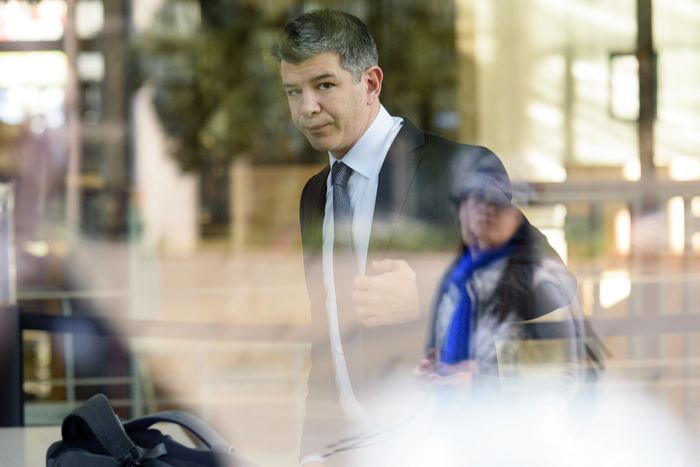The verdict in the criminal trial of Elizabeth Holmes completes a chapter in the tangled tale of Theranos. Meanwhile, the power that founders wield over startups—for better or worse—is only growing.
A jury found Ms. Holmes guilty on four counts of fraud and conspiracy against investors in Theranos, the once-hot blood-testing company she founded and led into disaster.
The verdict completes Theranos’s arc from a company valued above $9 billion and seen as revolutionizing blood testing under the leadership of a seemingly visionary wunderkind, to a failure that incinerated nearly $1 billion in investor money and put patient health at risk. As Ms. Holmes testified, she had ultimate control of Theranos throughout.
While much about the Theranos saga is distinct, including its culmination in criminal charges, it stands for many observers as an illustration of startup-founder worship run amok, where investors and other stakeholders grant outsize power and responsibility to entrepreneurial Svengalis who promise the next big thing.

Uber’s Travis Kalanick was ousted from the ride-hailing company after a series of scandals.
Photo: Michael Short/Bloomberg News
Other examples of founders who flamed out, sometimes after notable success, include Uber’s Travis Kalanick, who was ousted from the ride-hailing company after a series of scandals; WeWork’s Adam Neumann, who left his company after extensive reporting by the Journal on questionable decisions he made in advance of the company’s planned public offering.
In a more recent and extreme example, Trevor Milton, founder of electric truck-maker Nikola, now faces charges of securities fraud, to which he pleaded not guilty. His company is trying to recover $125 million from him to pay a fine it owes the Securities and Exchange Commission.
Despite those examples, giving startup founders near-total control of their companies, often in the form of shares that allow them many more votes than a typical share, has become the norm.
“Founders have as much or more control in the [Silicon] Valley ecosystem than they have ever had,” says Adam Epstein, an adviser on corporate governance to CEOs and their boards.
Why? For many in the startup world, Theranos and its ilk are the exceptions to what they see as a rule: that, in general, founder control is essential for the dynamism characteristic of American-style capitalism and innovation.
Founder-led and founder-controlled companies, now a hallmark of the startup ecosystem, have become some of the biggest, most disruptive companies in history. They are reshaping the transportation industry (think about how Tesla has accelerated the EV-ification of global autos) and empowering small businesses (think of the many payments and point-of-sale startups launched in the past decade). Tesla today is valued at more than $1 trillion. Stripe is at nearly $100 billion, Snap over $70 billion and Spotify above $40 billion.

Tesla has accelerated the electrification of global autos and is currently valued at more than $1 trillion.
Photo: David Paul Morris/Bloomberg News
The willingness of investors to allow founders so much leeway in the early days, even years, of the growth of a startup have arguably helped make the U.S. the world leader in the commercialization of myriad technologies. That has allowed the country to become a titanic exporter of intellectual property, software, and business models, selling both the tangible and intangible fruits of this system.
At its core, the reason for so much founder control is also about supply and demand: More money than ever is chasing startups, as big investors have sought places where they can earn a return on their investment in a world of near-zero interest rates. Global venture-capital spending hit a record $158 billion in the third quarter of last year—twice what it was in the same period in 2020. That figure, which represents just three months, is greater than or about as much as the total amount of VC deal flow in every year from 2010 to 2016.
In July, veteran venture capitalist Keith Rabois tweeted: “Biggest change in the venture landscape now: There are no VC funds with pricing discipline. All of us have caved.”
SHARE YOUR THOUGHTS
What did you find most interesting or surprising about the Elizabeth Holmes trial? Join the conversation below.
When I recently asked him to unpack that, he said: “I absolutely believe that with the flood of capital into VC, and Zoom-based investing, that the combination has led to materially less diligence on average per company.”
In venture capital, diligence used to mean spending days or even weeks researching a company, its founders, its competitive set and the challenges and opportunities of the industry in which it intended to operate.
Now, with so many firms eager to cut checks—and not just traditional venture-capital firms but also family wealth management offices, big banks, sovereign-wealth funds and the like—investors must make a decision about whether to invest in a startup in a matter of hours, adds Mr. Rabois.
Another challenge identified by both Mr. Rabois and Mr. Epstein is that pandemic lockdowns have shifted investment meetings from in-person to remote, via Zoom and its equivalents. It is much more difficult to evaluate a founder, their team, their product and the truth of their claims, remotely, they add.
The upshot is that investors, searching for the next Steve Jobs or Elon Musk, are molding corporate leaders whose controlling stakes in their companies make them largely unaccountable. In many cases, these CEOs effectively control their own boards.
All this freedom allows for companies such as Theranos to grow and develop in an environment where the only checks on the power of their founders often arrive years after they have amassed millions or even billions of dollars in investment, and broken promises to customers and partners.
Tech companies didn’t invent so-called “dual-class” stock structures. When the Ford Motor Co. went public in 1956, its stock was structured so that its founding family could maintain outsize voting control. But the modern era of tech founder control really got started in 2004, when Google went public with a structure that has kept its two founders in control of the company to this day. Facebook’s 2012 IPO continued the trend, making Mark Zuckerberg sole captain of the company’s ship. ( News Corp, owner of The Wall Street Journal’s publisher, has a dual-class ownership structure.)

When Ford Motor went public in 1956, its stock was structured so that its founding family could maintain outsize voting control.
Photo: Bettmann Archive/Getty Images
In the late 2010s, the trend went into overdrive, and supervoting shares became more or less standard for hot tech IPOs. Mr. Epstein attributes it to the deluge of capital from SoftBank through its $100 billion Vision Fund launched in 2017, which pumped money into companies including WeWork.
Venture capitalists enable these founder kings and queens in the hope they will take the kinds of risks that will pay off big. And many times, they do, at least from the perspective of their investors.
If we view the global startup ecosystem in purely mechanistic terms, pouring more money into it is a bit like pouring more energy into any other closed system. Like adding heat to a pot of water and bringing it from a simmer to a rolling boil, adding money to it means more churn and more variability.
On the one hand, that might mean more Teslas and Apples are being born even as you read this. On the other hand, all this cash sloshing around, and the decreased due diligence which has followed, could lead to more Theranoses.
Ultimately, in other words, even a failure as dramatic as Theranos—and the criminal conviction of Ms. Holmes—may be unavoidable in a Silicon Valley ecosystem where speed is prized, failure is no mark of shame and funding is nearly limitless.
“The good thing about allowing the founder to have more power is that they can do things faster,” says Nikhilesh Sinha, a professor of economics and finance at Hult International Business School in London. “As with every system where you have an autocratic power, decision making is much less costly—but the fallout is there can also be a much larger downside.”
Write to Christopher Mims at [email protected]
Copyright ©2022 Dow Jones & Company, Inc. All Rights Reserved. 87990cbe856818d5eddac44c7b1cdeb8







